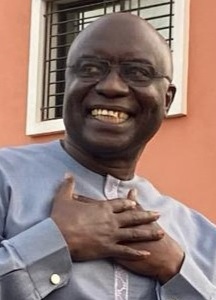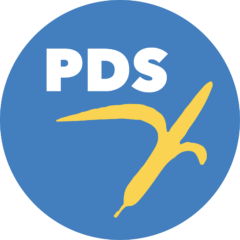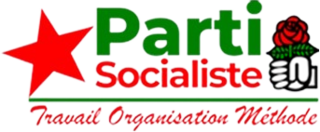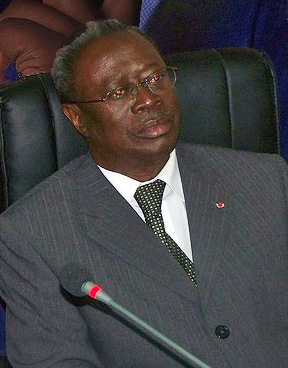| |||||||||||||||||||||
| Turnout | 66.27% | ||||||||||||||||||||
|---|---|---|---|---|---|---|---|---|---|---|---|---|---|---|---|---|---|---|---|---|---|
| |||||||||||||||||||||
 Results by department | |||||||||||||||||||||
| |||||||||||||||||||||
 |
|---|
Presidential elections were held in Senegal on 24 February 2019. [1] Incumbent president Macky Sall of the Alliance for the Republic was re-elected for a second term with 58% of the vote in the first round.
| |||||||||||||||||||||
| Turnout | 66.27% | ||||||||||||||||||||
|---|---|---|---|---|---|---|---|---|---|---|---|---|---|---|---|---|---|---|---|---|---|
| |||||||||||||||||||||
 Results by department | |||||||||||||||||||||
| |||||||||||||||||||||
 |
|---|
Presidential elections were held in Senegal on 24 February 2019. [1] Incumbent president Macky Sall of the Alliance for the Republic was re-elected for a second term with 58% of the vote in the first round.
The President of Senegal is elected using the two-round system; a candidate must receive over 50% of the vote to be elected in the first round. If no candidate had crossed the threshold, a second round would have been held between the top two candidates. [2]
Prior to the elections, the electoral law was amended to introduce requirements for candidates to secure signatures from at least 0.8% of the registered electorate, and for at least 2,000 signatures from seven of the 14 regions. Voters were only allowed to give a signature to one candidate. [3]
Although 87 candidates registered intent to collect signatures, [4] only around 20 applied to the Constitutional Council to participate in the election, with the requirement for signatures and the introduction of a 30 million franc bond thought to have put many potential candidates off. [5] Five candidates were approved to run in the elections; Madické Niang , Issa Sall , Macky Sall, Idrissa Seck and Ousmane Sonko. [6]
In January 2019, two opposition leaders Khalifa Sall and Karim Wade were barred from participating due to previous convictions for misuse of public funds. [6]
On 25 February 2019, Prime Minister Mahammed Dionne said that Sall had been re-elected with "a minimum of 57%" of the vote, enough to avoid a runoff election. He also said Sall had won in 13 of the country's 14 regions. [7] On 5 March 2019, the Constitutional Council confirmed the election results.
| Candidate | Party | Votes | % | |
|---|---|---|---|---|
| Macky Sall | Alliance for the Republic | 2,555,426 | 58.26 | |
| Idrissa Seck | Rewmi | 899,556 | 20.51 | |
| Ousmane Sonko | PASTEF | 687,523 | 15.67 | |
| Issa Sall | Party for Unity and Rally | 178,613 | 4.07 | |
| Madické Niang | Independent | 65,021 | 1.48 | |
| Total | 4,386,139 | 100.00 | ||
| Valid votes | 4,386,139 | 99.04 | ||
| Invalid/blank votes | 42,541 | 0.96 | ||
| Total votes | 4,428,680 | 100.00 | ||
| Registered voters/turnout | 6,683,043 | 66.27 | ||
| Source: Constitutional Council | ||||

Politics in Senegal takes place within the framework of a presidential democratic republic. The President of Senegal is the head of state and government. Executive power in Senegal is concentrated in the president's hands.

Abdoulaye Wade is a Senegalese politician who served as the third president of Senegal from 2000 to 2012. He is also the Secretary-General of the Senegalese Democratic Party (PDS), having led the party since it was founded in 1974. Assuming office at 74, Wade was the oldest person to occupy the post.

Idrissa Seck is a Senegalese politician who was Prime Minister of Senegal from November 2002 to July 2004. He was a leading member of the Senegalese Democratic Party (PDS) and was considered a protégé of President Abdoulaye Wade, but he subsequently went into opposition and was a candidate in the February 2007 presidential election, coming second place with about 15% of the vote.

The Senegalese Democratic Party is a political party in Senegal. The party considers itself a liberal party and is a member of the Liberal International. Abdoulaye Wade, who was President of Senegal from 2000 to 2012, is the party's leader. The PDS ruled together with smaller parties as part of the Sopi Coalition. Since Wade's defeat in the 2012 presidential election, the PDS has been the main opposition party.

Macky Sall is a Senegalese politician who served as the fourth president of Senegal from 2012 to 2024. He previously served as the eighth prime minister from 2004 to 2007, under President Abdoulaye Wade and president of the National Assembly from 2007 to 2008.

The Socialist Party of Senegal is a political party in Senegal. It was the ruling party in Senegal from independence in 1960 until 2000. In 2000, the party's candidate and previous incumbent president, Abdou Diof, was defeated by the leader of the Senegalese Democratic Party, Abdoulaye Wade.

Amath Dansokho was a Senegalese politician. He was Secretary-General of the Party of Independence and Work (PIT) for years; he also served in the government of Senegal as Minister of Urban Planning and Housing from 1991 to 1995 and again, briefly, in 2000. He was mayor of Kédougou for a time. Since 2012, he was a special adviser to the president of Senegal; he was also honorary president of the PIT.

Presidential elections were held in Senegal on 25 February 2007. Incumbent president Abdoulaye Wade was re-elected in the first round with almost 56% of the vote.

Parliamentary elections were held in Senegal on 3 June 2007 to elect the 150 members of the National Assembly. They had originally been planned to be held together with the presidential election on 25 February 2007, but were postponed. Fourteen parties or coalitions participated in the elections, but they were marked by a major opposition boycott. The ruling Sopi Coalition won 131 seats, including all 90 of the seats elected by majority voting.

Robert Sagna is a Senegalese politician who served in the government of Senegal from 1978 to 2000 and was Mayor of Ziguinchor from 1984 to 2009. He was elected to the National Assembly of Senegal in 2007.

Abdoulaye Bathily is a Senegalese politician and diplomat. Bathily, the long-time Secretary-General of the Democratic League/Movement for the Labour Party (LD/MPT), served in the government of Senegal as Minister of the Environment from 1993 to 1998 and as Minister of Energy from 2000 to 2001. Later, he worked as a diplomat for the United Nations, and since 2014 he has been Special Representative of the United Nations Secretary-General for Central Africa.

Presidential elections were held in Senegal on 26 February 2012, amidst controversy over the constitutional validity of a third term for incumbent president Abdoulaye Wade. In the runoff on 25 March, Macky Sall defeated the incumbent president. The 2015 documentary film Incorruptible chronicles both campaigns as well as the youth movement Y'en a Marre, which led protests against Wade's administration.

General elections were held in Burkina Faso on 29 November 2015. They were the first national elections in the country since the 2014 Burkinabé uprising and the departure of President Blaise Compaoré, who had ruled Burkina Faso for 27 years. Compaoré's party, the Congress for Democracy and Progress, was banned from presenting a presidential candidate in the presidential elections but was still able to participate in the parliamentary election.

Parliamentary elections were held in Senegal on 30 July 2017 to elect the 165 members of the National Assembly after being postponed from the originally scheduled date of 2 July. President Macky Sall's United in Hope coalition won a landslide victory and maintained its overall majority.

Presidential elections were held in Cameroon on 7 October 2018.

Soham El Wardini is a Senegalese politician and former mayor of Dakar, Senegal. She is the first woman to be mayor of post-independence Dakar and the first deputy mayor of the city.

Ousmane Sonko is a Senegalese politician and former tax official who is serving as the 16th prime minister of Senegal since 2024. He is also the leader of PASTEF ever since the party was founded in January 2014.

Aïssata Tall Sall is a Senegalese lawyer and politician who has been the country's Foreign Minister since November 2020.

Parliamentary elections were held in Senegal on 31 July 2022 to elect the 165 members of the National Assembly. President Macky Sall's United in Hope coalition remained the largest bloc in the National Assembly but lost its majority it had held since 2012.

Presidential elections were held in Senegal on 24 March 2024. Incumbent president Macky Sall was ineligible to pursue a third term due to term limits in the Constitution of Senegal.